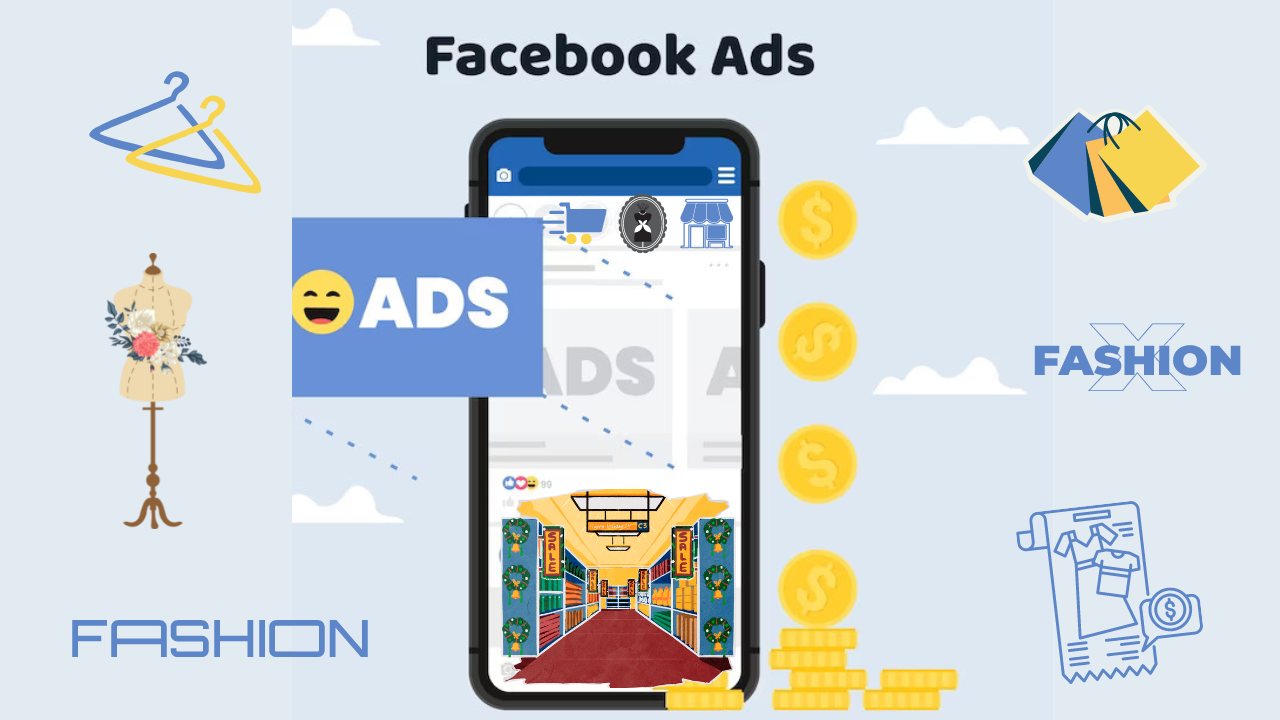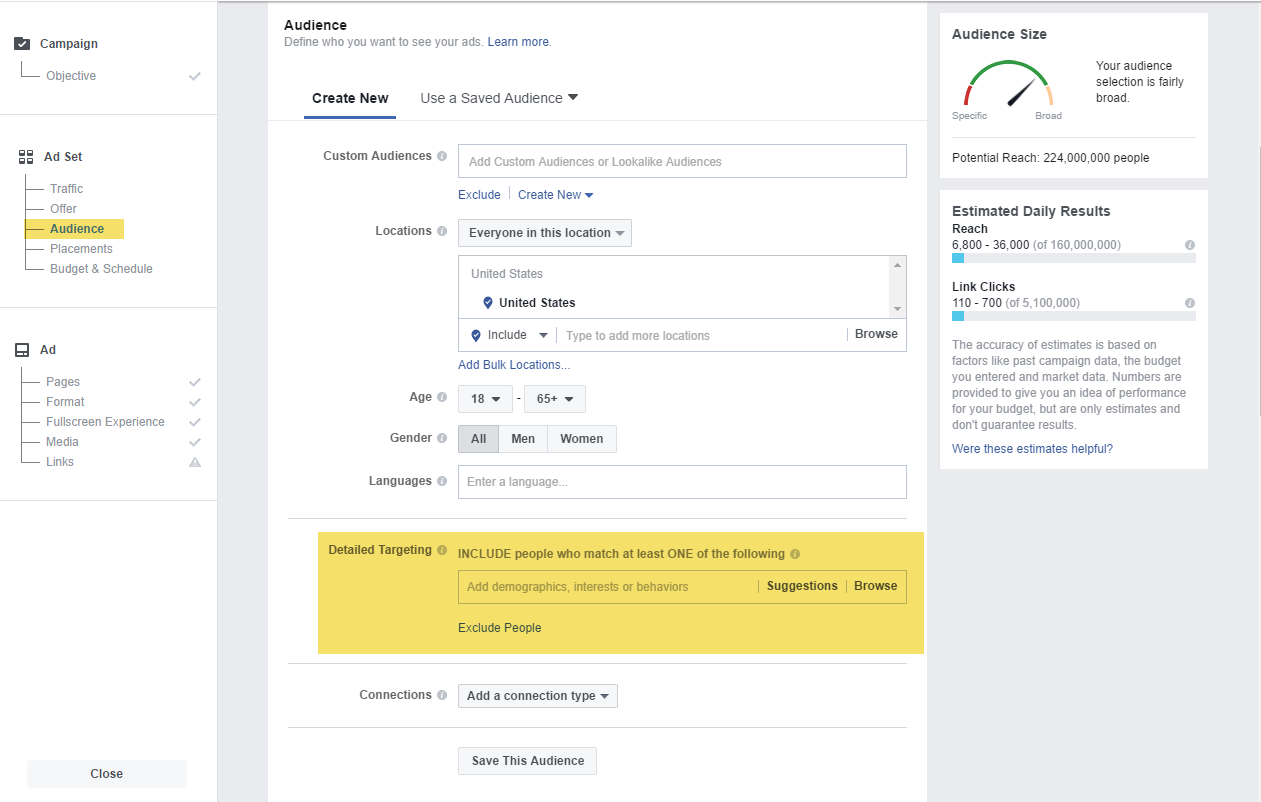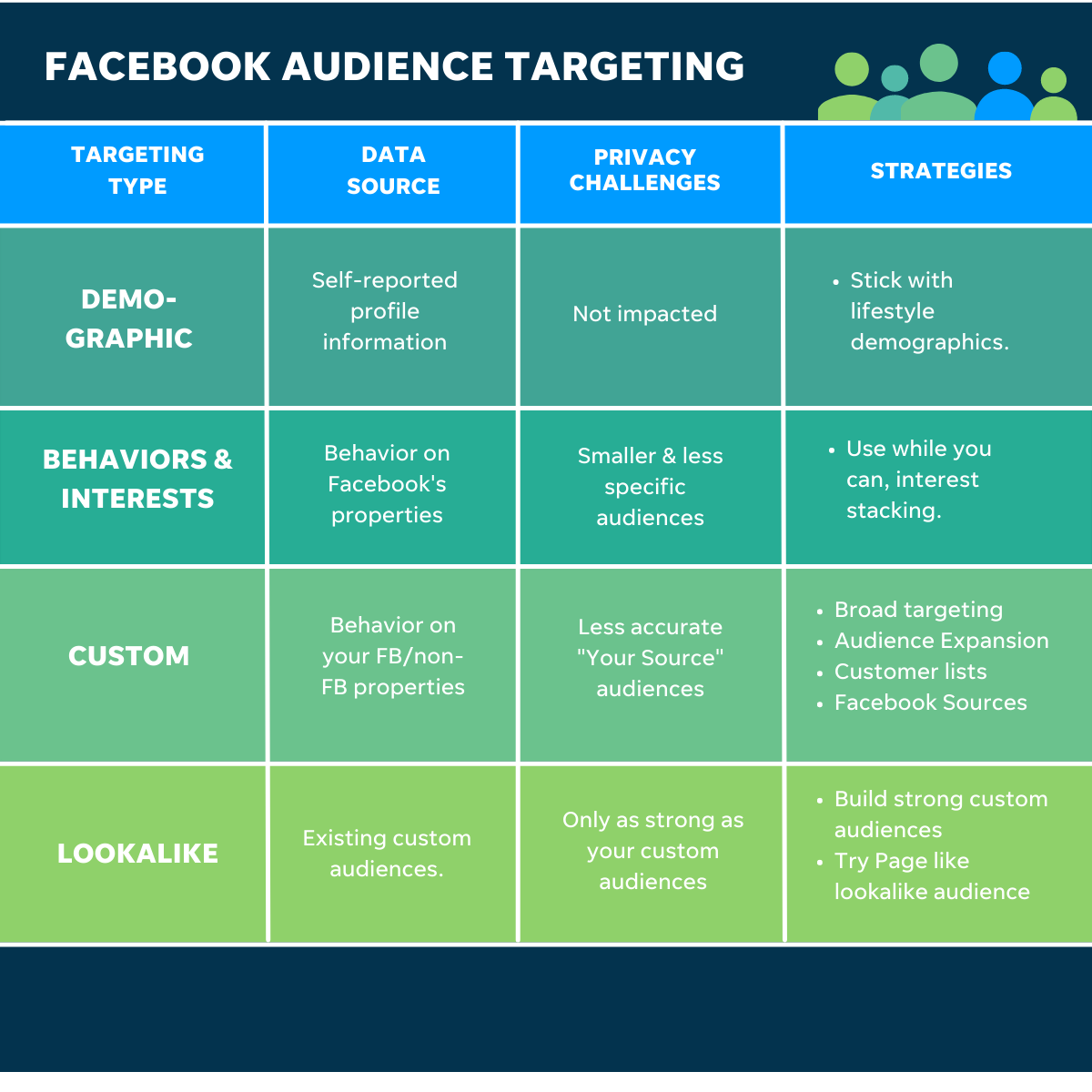
In the realm of Facebook's ever-evolving algorithm, understanding the pivotal 'What' keywords Should I Target Facebookis the compass that guides your journey to social mediasupremacy. Unveiling the right set of keywords isn't just a game-changer; it's the vital ingredient for unlocking unparalleled visibility and engagement. This comprehensive guide dives deep into the art and science behind identifying and targeting those strategic 'What' keywords that hold the potential to propel your contentto the forefront of users' feeds.
Delve into actionable insights, real-world examples, and expert strategies meticulously curated to empower your Facebook presence. Whether you're a seasoned marketer, a burgeoning influencer, or a businessseeking to amplify your social impact, mastering the 'What' keywords is your golden ticket to captivating your audience's attention, fostering meaningful interactions, and ultimately, carving your path to triumph in the dynamic realm of Facebook marketing.
What Is Facebook Keyword?

Facebook keywords are the words and phrases that users type into the Facebook search bar when looking for specific content, pages, products, or services. They play a crucial role in helping users find relevant information and connect with the businesses, brands, and individuals they are interested in.
Types Of Facebook Keywords
1. Long-tail keywords - These are phrases that are longer and more specific than broad or specific keywords. They often include multiple words and describe a very specific topic or intent. For example, "best social media marketingtools for small businesses," "affordable women's fashion trends for summer," or "home workout routines for beginners" are long-tail keywords.
2. Specific keywords -These are more focused terms that relate to a specific product, service, or topic. For example, "social media marketing," "women's fashion," or "workout tips" are specific keywords.
3. Broad keywords -These are general terms that describe a broad topic or category. For example, "marketing," "fashion," or "fitness" are broad keywords.
How To Use Facebook Keywords?
There are several ways to use Facebook keywords to improve your online presence and reach your target audience:
- Use keywords in your Facebook posts - When you share content on Facebook, use relevant keywords in your posts to make them more discoverable.
- Join relevant groups and discussions -Participate in groups and discussions that are relevant to your keywords.
- Create targeted ad campaigns -Use Facebook's Ad Manager to create targeted adsthat reach people who are interested in your keywords.
- Optimize your Facebook Page -Use relevant keywords in your Page's name, description, and posts.
Examples Of Facebook Keywords
If you are a fitness studio, you might use keywords like "yoga classes," "pilates," or "personal training."
If you are a clothing store, you might use keywords like "women's fashion," "men's clothing," or "affordable fashion."
What Keywords Should I Target Facebook - 10 Tips
When selecting keywords to target on Facebook, it's crucial to consider your target audience, your businessgoals, and the overall campaign strategy. Here are 10 must-know factors to keep in mind when choosing your keywords:
1. Use Facebook's keyword suggestion tool -Facebook's Ads Manager provides a keyword suggestion tool that can help you discover relevant keywords for your campaigns. This tool can be a valuable resource for identifying new keyword opportunities.
2. Combine keywords with interests and behaviors -Facebook allows you to combine keywords with targeting based on interests and behaviors. This layering of targeting options helps you reach a more refined and relevant audience.
3. Use negative keywords -Exclude irrelevant keywords that could trigger your ads for unrelated searches. This helps control your ad spend and ensures your ads are shown to the right audience.
4. Regular keyword review -Regularly review your keyword performance and make adjustments as needed. Some keywords may become less relevant or competitive over time, while new keywords may emerge.
5. Keyword variations -Use a variety of keyword variations, including synonyms, related terms, and misspellings. This expands your reach and ensures that your ads appear for users searching for related terms.
6. Long-tail keywords -Consider using long-tail keywords, which are more specific and less competitive than short-tail keywords. Long-tail keywords can help you attract more qualified leads who are actively searching for your products or services.
7. Competitor analysis -Analyze your competitors' keyword strategies to identify gaps and opportunities. Use tools like SEMrush or Ahrefs to see which keywords your competitors are ranking for and how they are using them.
8. Audience targeting -Align your keywords with your target audience's interests, demographics, and behaviors. Facebook's powerful targeting options allow you to reach specific groups of people based on their characteristics and online activities.
9. Search volume -Use keyword research tools to identify keywords with a decent search volume. While high-volume keywords can bring more traffic, they may also be more competitive and expensive. Consider a mix of high, medium, and low-volume keywords for a balanced approach.
10. Relevance to your business -Choose keywords that accurately represent your products, services, or brand. Avoid using irrelevant or overly broad keywords that won't attract your desired audience.
By carefully considering these factors, you can select the right keywords to target on Facebook and achieve your advertising goals. Remember, effective keyword targeting is an ongoing process that requires regular evaluation and optimization.
Differences In The Facebook Keywords

Keywords on Facebook serve a different purpose than keywords on search engines like Google. On Facebook, keywords are primarily used for audience targeting rather than matching user search queries. This means that Facebook doesn't consider keywords when ranking ads in search results, unlike traditional search engines.
Here are the key differences between Facebook keywords and search enginekeywords:
Purpose
- Search engine keywords -Used for search query matching, triggering ads for users actively searching for those terms.
- Facebook keywords -Used for audience targeting, identifying relevant users to display ads to.
Relevance
- Search engine keywords -Match users' specific search intent, indicating their current needs or interests.
- Facebook keywords -Align with users' interests, demographics, and behaviors.
Targeting
- Search engine keywords -Used primarily for search query matching, with limited targeting options beyond demographics and location.
- Facebook keywords -Used in conjunction with detailed targeting options, such as interests, behaviors, and demographics.
Effectiveness
- Search engine keywords -Effective for capturing relevant traffic from users actively searching for specific products, services, or information.
- Facebook keywords -Effective for reaching specific audience segments based on their offline and online activities.
Optimization
- Search engine keywords -Regularly reviewed and optimized based on search trends, competition, and keyword relevance.
- Facebook keywords -Continuously reviewed and optimized based on audience insights and campaign performance.
Facebook keywords are about targeting the right audience, while search engine keywords are about matching the right search intent. Both types of keywords play a crucial role in achieving successful digital marketing campaigns.
Why Should You Use Facebook Ads Keyword Targeting?
Facebook Ads keyword targeting offers several advantages for reaching your target audience and achieving your advertising goals:
1. Reach a Relevant Audience -Keyword targeting allows you to pinpoint specific users who are actively interested in your products, services, or industry. This ensures that your ads are shown to the right people, increasing the likelihood of engagement and conversions.
2. Improve Ad Relevance -By targeting relevant keywords, you can tailor your ad content to align with the interests and search behavior of your target audience. This enhances the relevance of your ads, making them more compelling and effective.
3. Enhance Campaign Performance -By reaching a more relevant audience and presenting ads that resonate with their interests, keyword targeting can lead to improved campaign performance, including higher click-through rates (CTRs), lower costs per click (CPCs), and increased conversions.
4. Optimize Ad Spend -By targeting specific keywords, you can allocate your ad spend more efficiently, ensuring that your ads reach the users most likely to take action. This targeted approach helps you maximize the return on your investment (ROI).
5. Identify Keyword Trends -Keyword targeting provides insights into the search behavior of your target audience, allowing you to identify emerging trends and adapt your ad strategy accordingly. This helps you stay ahead of the curve and maintain relevance in your industry.
6. Refine Audience Targeting -Keyword targeting can be combined with other targeting options, such as demographics, interests, and behaviors, to further refine your audience segmentation. This layered approach ensures that your ads reach the most qualified and receptive audience possible.
7. Monitor Keyword Performance -Facebook provides detailed analytics that allow you to track the performance of your keywords, including impressions, clicks, and conversions. This data enables you to identify underperforming or irrelevant keywords and make adjustments to optimize your campaign.
8. Enhance Brand Awareness -By consistently showing relevant ads to your target audience, keyword targeting can contribute to increased brand awareness and recognition. This can lead to long-term benefits, such as improved customer loyalty and brand reputation.
9.Track Overall Campaign Performance -Monitor the performance of your Facebook Ads campaigns that are using keywords informed by Google Ads data. Analyze metrics such as impressions, clicks, conversions, and cost-per-acquisition (CPA) to assess the effectiveness of this strategy.
How To Use Facebook Ads To Get More Leads And Reach Your Best Prospects?

Facebook Ads can be a powerful tool for businesses of all sizes to reach their target audience, generate leads, and drive sales. Here are some key steps on how touse Facebook Ads effectively to achieve these goals:
1. Define Your Target Audience
- Identify your ideal customer's demographics, interests, behaviors, and online habits.
- Utilize Facebook's Audience Insights tool to gather data on your target audience.
- Create custom audiences based on your existing customer data or website visitors.
2. Set Clear Campaign Objectives
- Determine what you want to achieve with your Facebook Ads campaign, such as generating leads, increasing website traffic, or boosting brand awareness.
- Align your campaign objectives with your overall business goals and marketing strategy.
- Set measurable goals and track your progress throughout the campaign.
3. Choose The Right Campaign Type
- Facebook offers various campaign types tailored to different objectives, such as Lead Ads, Website Traffic Ads, and Brand Awareness Ads.
- Select the campaign type that best suits your advertising goals and target audience.
- Consider using multiple campaign types to achieve a comprehensive marketing strategy.
4. Craft Compelling Ad Copy And Creatives
- Create engaging and informative ad copy that resonates with your target audience.
- Use high-quality images or videos that capture attention and convey your message effectively.
- Test different ad variations to identify the most effective combinations of copy, images, and videos.
5. Set Effective Targeting Options
- Leverage Facebook's powerful targeting options to reach your ideal customers with precision.
- Target by demographics, interests, behaviors, and custom audiences.
- Use lookalike audiences to reach people similar to your existing customers.
- Consider using location targeting to focus on specific geographic areas.
6. Set A Realistic Budget And Schedule
- Determine how much you're willing to spend on your Facebook Ads campaign.
- Set a budget that aligns with your marketing goalsand financial resources.
- Consider starting with a smaller budget and gradually increasing it as you see results.
- Optimize your ad scheduling based on your target audience's online behavior.
7. Track Your Results And Optimize
- Monitor your campaign performance closely using Facebook's Ads Manager platform.
- Analyze key metrics such as impressions, clicks, engagement, and conversions.
- Identify areas for improvement and make adjustments to your campaign accordingly.
- Continuously test different ad variations, targeting options, and budget strategies.
8. Utilize Facebook Pixel For Retargeting
- Install the Facebook Pixel on your website to track visitor behavior and conversions.
- Create retargeting campaigns to reach people who have previously visited your website or interacted with your ads.
- Target retargeting ads to specific segments of website visitors based on their behavior.
9. Engage With Your Audience
- Respond promptly to comments and questions on your ads.
- Encourage conversations and interactions with your target audience.
- Build relationships with potential customers through active engagement.
10. Experiment And Adapt
- Facebook Ads is an evolving platform, so stay up-to-date on new features and best practices.
- Experiment with different ad formats, targeting options, and creative approaches.
- Adapt your campaigns based on data-driven insights and changing market trends.
Frequently Asked Questions About What Keywords Should I Target Facebook
How Do I Choose Keywords For Facebook?
The best way to do keyword research is to just see what types of suggested keywords come up when you type in a keyword in the interests section of your Facebook Ad Audience area. Select one keyword or job title and then select Suggestions to see what other possibilities come up.
Which Keywords Are The Best To Target?
The best keywords to targetwill be relevant to your content. Your keywords should be something that answers a question, solves a problem, or otherwise helps a customer or provides value to your target audience. Do they have a high search volume? Aim for keywords with a high search volume.
How Can I Improve My Facebook Ad Targeting?
Your Facebook ad targeting strategy could be better. Here's how:
- know what all your audience options are.
- know what purpose each serves in your funnel.
- know the right balance between them.
- find the right audiences that are interested in your product.
- know how to optimize them in a way that gets more results for less cost.
Conclusion
In the ever-evolving landscape of Facebook, harnessing the potential of targeted 'What' keywords is not merely a tactic but a strategic imperative. As this guide concludes, remember that success on this platform isn't solely about finding the most popular terms but about aligning your content with the specific interests, needs, and language of your audience.
Embrace the journey of discovery and optimization, recognizing that the power of 'What' keywords lies not just in their selection but in their smart utilization. With a thoughtful blend of relevance, creativity, and consistent analysis, your content can transcend the confines of the news feed, resonating deeply with your audience and forging lasting connections.